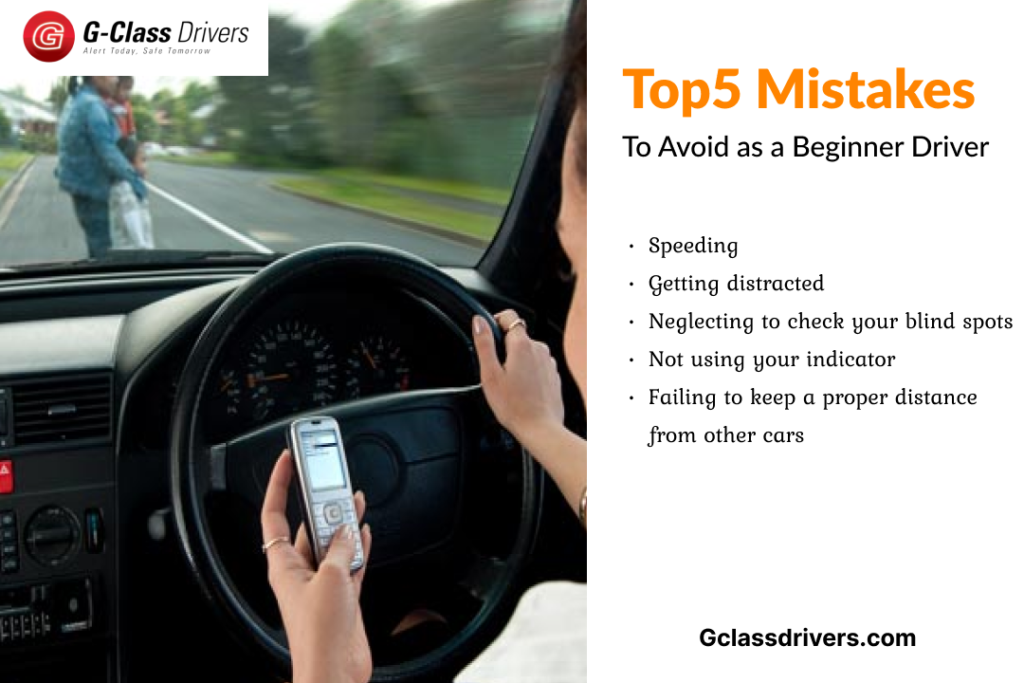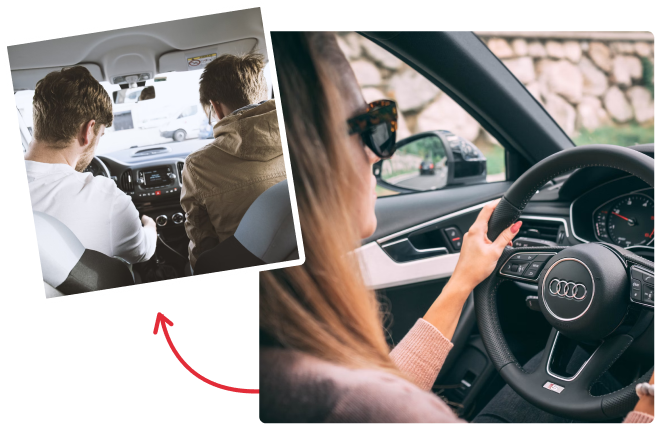Driving can be challenging, and we all make common driving mistakes from time to time. These mistakes can lead to accidents, fines, or simply make driving stressful. If you know what these mistakes are and how to avoid them is the first step to becoming a safer driver. Keep reading to learn how to drive safer every day!
Common Driving Mistakes in Ontario and How to Avoid Them
Driving in Ontario can be an enjoyable experience, but even the most experienced drivers can make mistakes. Whether you’re new to the road or an experienced one. It’s important to stay aware of the common driving mistakes that can impact your safety and others. Let’s discuss some of the most common driving mistakes in Ontario and how to avoid them.
1. Speeding
Speeding higher than limits is a major cause of accidents here in Ontario. It’s very easy to lose track of your speed, especially on highways or in the city. But speeding puts everyone at risk. You must follow the speed limits and adjust your speed based on the road and weather conditions. When it’s snowy, rainy, or foggy, slow down even more.
2. Distracted Driving
Distracted driving is a kind of driving in which you distract yourself from driving by using your phone, eating, or adjusting the radio. While this kind of driving can be dangerous. Distracted driving is a top cause of accidents in Ontario. The best thing to do is keep your focus on the road. If you need to make a call, use hands-free devices.
3. Failing to Signal
When you do not signal when changing lanes or turning it can confuse other drivers and cause accidents. Always use your turn signals to let others know your next move. It’s a simple step that can prevent a lot of trouble.
4. Running Stop Signs and Red Lights
Running a stop sign or red light might seem like a small thing, but it can lead to serious accidents. Always stop at intersections, look both ways and check for pedestrians or other vehicles before moving. It’s safer for everyone.
5. Improper Lane Changes
If you change lanes without checking your mirrors or blind spots it’s a cause for disaster. Always make sure it’s safe before switching lanes. Signal your intention and check your surroundings. These small habits can keep you safe from accidents.
6. Tailgating
Tailgating means driving too close to the car in front of you. This is risky because if the other car stops suddenly, you might not have enough time to brake. To stay safe, follow the “two-second rule.” Pick a fixed object on the road (like a sign or tree). When the car in front passes it, count “one thousand one, one thousand two.” If you reach the object before you finish counting, you’re too close slow down and leave more space.
7. Driving Under the Influence
Driving after drinking alcohol or using drugs is very dangerous and illegal. It slows your reaction time and increases the chances of accidents. If you have a plan to drink, arrange for a designated driver, take a taxi, or use public transport. Stay safe on the road and protect yourself and others.
8. Not Yielding to Pedestrians
In Ontario, drivers must stop for pedestrians at crosswalks and intersections. Not stopping can lead to fines and put people in danger. Always watch for pedestrians, especially near schools, busy streets, and crosswalks. Slow down and stop when needed to keep everyone safe.
9. Incorrect Use of Headlights
Headlights help you see and be seen on the road. Turn them on in fog, rain, or at night to improve visibility. Dim your high beams when other cars are coming to avoid blinding drivers. Using headlights correctly keeps everyone safe on the road.
10. Driving Without Checking Blind Spots
Blind spots are areas around your car that you can’t see in your mirrors. If you don’t check them, you might miss another vehicle, which can lead to an accident. Before changing lanes or merging, always check your mirrors and look over your shoulder to make sure the road is clear.
11. Not Adjusting for Weather Conditions
Ontario’s weather can change fast, from heavy rain to snowstorms. If the weather is bad, slow down, keep extra space between cars, and turn on your headlights to see better. Driving carefully in bad weather helps prevent accidents and keeps everyone safe.
- What to do in bad weather? Slow down, increase distance, and use headlights.
- Why it matters? Helps avoid skidding and accidents.
- When to be extra careful? During rain, snow, fog, and icy roads.
- How to stay safe? Adjust your speed and stay alert.
12. Misunderstanding Right-of-Way Rules
Not knowing who should go first at intersections can cause confusion and accidents. Learn the right-of-way rules for four-way stops, roundabouts, and pedestrian crossings. When in doubt, yield to be safe it helps prevent crashes and keeps traffic flowing smoothly.
13. Stopping Suddenly Without Warning
We’ve all done it: suddenly stopping for a parking spot or a Krispy Kreme sign. The problem is, that the car behind you may not have time to react and could hit you. Sudden stops cause a lot of accidents, especially on busy roads.
Be aware of the car behind you. Always stop slowly, giving enough time for others to react. This prevents accidents and ensures you don’t miss out on those doughnuts!
How to Avoid These Mistakes?
Staying safe on the road is easier than you think. Here are some simple tips to help you drive safely:
- Stay focused: Keep your eyes on the road and avoid distractions like using your phone. Distracted driving causes about 30% of traffic accidents in Ontario, so staying focused is key.
- Follow road signs: Stick to speed limits and obey traffic lights. Speeding increases the risk of accidents, so following the rules keeps everyone safer.
- Plan ahead: Give yourself extra time to get to your destination. Rushing can lead to mistakes, but planning ahead helps you avoid pressure and stay calm.
- Stay calm: Don’t drive aggressively. Avoid tailgating and honking. Staying calm helps reduce stress and prevents dangerous situations.
- Refresh your skills: If you feel unsure about driving, consider taking a driving course to improve your knowledge and confidence. A refresher course can boost your skills and make you a safer driver.
By following these simple tips every time you drive, you’ll keep yourself and others safe on the road.
Avoid Common Driving Mistakes By Enrolling in G-Class Drivers School
At GClass Drivers School, we’re here to help you become a safer and more confident driver. Whether you’re looking to avoid common mistakes or improve your skills, our expert instructors will provide lessons that match your needs.
Why choose GClass Drivers School?
- Expert Guidance: Our instructors will teach you the key skills for safe driving.
- Tailored Lessons: We adjust the lessons to focus on what you need, helping you learn faster.
- Confidence Boost: You’ll feel more confident and safe behind the wheel.
Ready to get started? Contact G-Class Drivers School today and take the first step towards becoming a safer driver!
FAQs
What are minor mistakes in driving?
Minor mistakes include not using turn signals, slight speeding, improper lane changes, rolling stops, and forgetting to check mirrors.
Which of the following is considered one of the 10 most common driving errors?
Common driving mistakes include tailgating, distracted driving, speeding, not yielding to pedestrians, and failing to check blind spots.
How to properly parallel park?
Align your car with the one in front, reverse while turning the wheel, straighten out, and adjust your position as needed.
How to forgive yourself for driving mistakes?
Accept that mistakes happen, learn from them, practice more, and focus on improving your driving skills.





